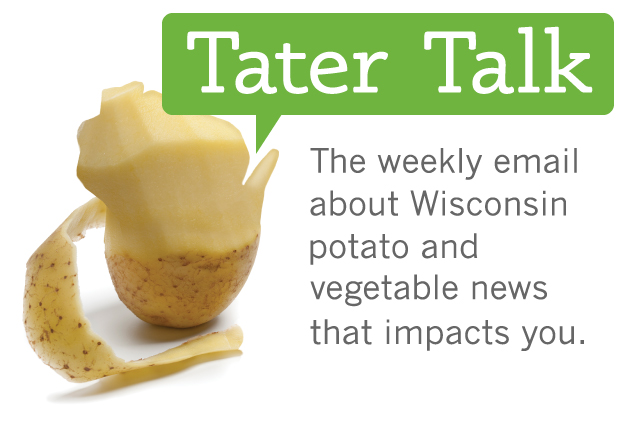Land Ethic & Central WI Vegetable Growers
 Land stewardship—that heart felt love of our open, green areas, interspersed with crops that are so essential in maintaining our rural landscapes. We all want to be land stewards but what does that term mean to farmers in Central Wisconsin who own many of these lands?
Land stewardship—that heart felt love of our open, green areas, interspersed with crops that are so essential in maintaining our rural landscapes. We all want to be land stewards but what does that term mean to farmers in Central Wisconsin who own many of these lands?
Wisconsin’s land ethic writings go back to Aldo Leopold, the esteemed author of the Sand County Almanac in which he described Wisconsin’s biodiversity, beauty and ability to integrate landscapes and agriculture.
Although the book was written in 1949, the themes of the book resonate today, especially with farmers who manage both large and small swaths of land and carefully weave together the natural and agricultural areas into biodiverse landscapes.
There is certainly a personal value to land ethic, but the benefits expand beyond private ownership to society at large.
Rural communities realize direct value from expanded hunting, fishing and recreational opportunities. Less obvious benefits that stem from the precious resources preserved in these areas include clean water, unique plant and animal species, and pollinator diversity that are not common in urban landscapes.
Central Wisconsin has a diverse agroecosystem that goes far beyond “fence row to fence row” farming. In fact, more than 44% of the non-agricultural lands in Wisconsin are owned by farmers!
This land is not farmed but intentionally preserved and managed by farmers to provide and enhance local and regional benefits to society. Our ability to apply the principles of Aldo Leopold’s land ethic regionally is largely dependent on the commitment and willingness of farmers to manage these privately owned lands for the public good.
Whether this occurs through restoration efforts to restore natural vegetation, forested landscapes, wetlands, conservation easements or other services, the resulting landscapes benefit us all through improved water infiltration and flood control, soil stabilization, carbon sequestration, natural pest control, diverse pollination and recreational opportunities, such as hiking, hunting and fishing.
Potato and vegetable farmers in Central Wisconsin have long pioneered the land ethic through the establishment of the Healthy Grown® potato program, which certifies research-based ecological restoration efforts on farms. This effort commits growers to work with ecologists to identify remnants of natural ecosystems on their farms and install practices to restore them.
Currently, more than 400 acres of privately owned lands are being restored based on these certified and documented habitat restoration efforts.
Many new prairie plantings and other habitat improvements have enhanced the diversity of plants and animals across Central Wisconsin as a result of the Healthy Grown® program. Continuing this tradition, potato growers and local food processors are currently working together with the Village of Plover in Portage County to establish a major new Conservancy area that will expand wetlands and relocate crop fields altering the landscape permanently for the benefit of local residents and others throughout the region.
Since rural communities encompassing agricultural lands are a huge part of the natural landscapes of Central Wisconsin, we are fortunate that our farmers continue to uphold the land ethic of Aldo Leopold. As described in the Sand County Almanac, “land use that balances the landowner’s need to remain profitable with the responsibility of protecting a functioning ecological system is stewardship.”
We have that in Wisconsin!


